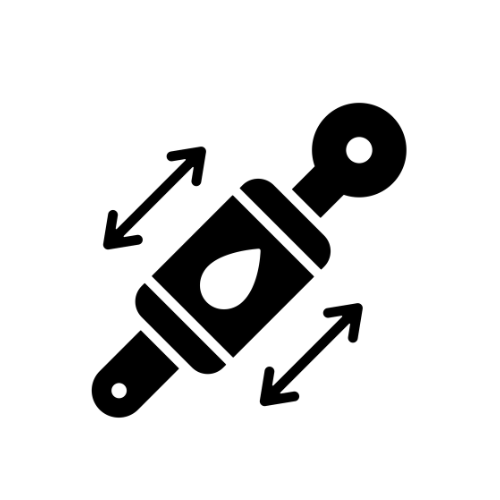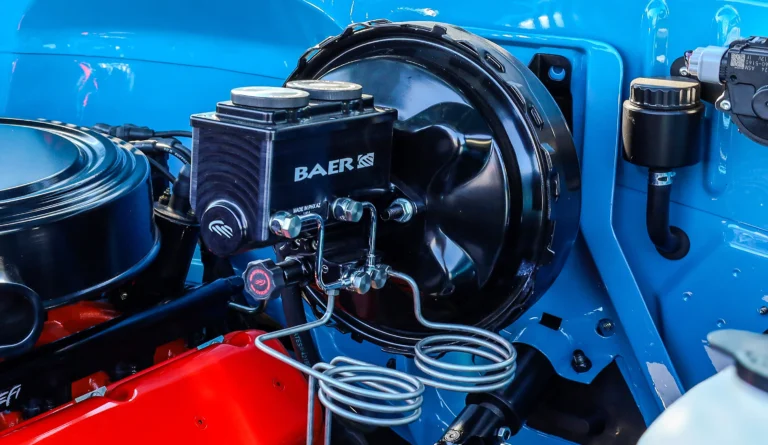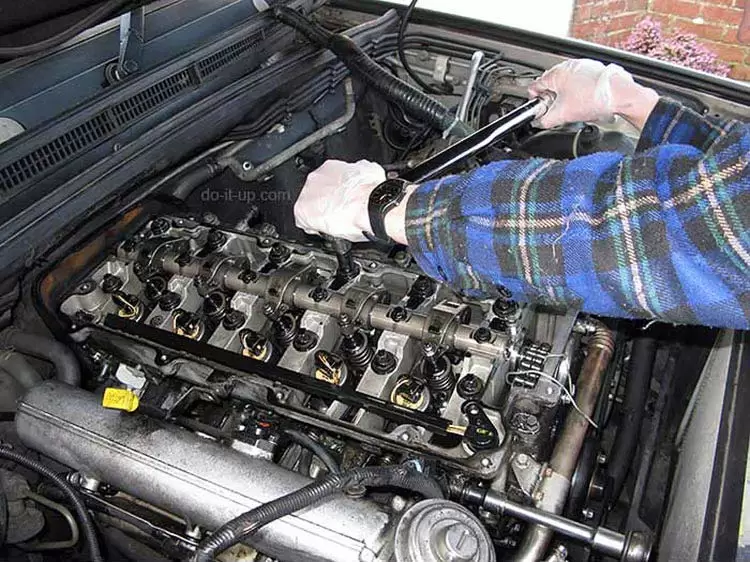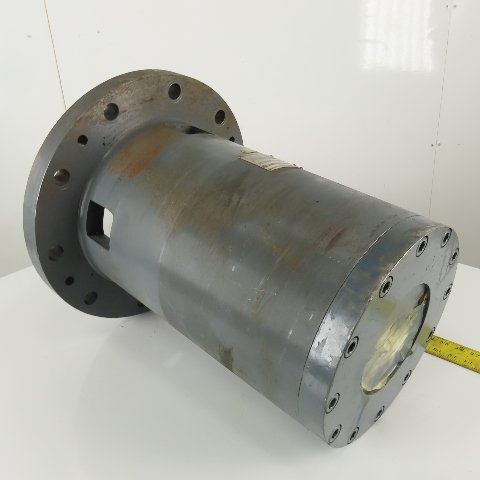Can a Clutch Master Cylinder Be Bad Without Leaking?
Yes, a clutch master cylinder can be bad without leaking, causing issues with clutch engagement. This can lead to difficulty in shifting gears smoothly and may require replacement.
The clutch master cylinder plays a crucial role in the operation of a manual transmission vehicle. If the cylinder is faulty, it can result in symptoms such as a spongy clutch pedal or difficulty in disengaging the clutch. It is essential to address any potential issues promptly to avoid further damage to the clutch system.
In this blog post, we will explore the common signs of a bad clutch master cylinder, potential causes, and the importance of regular maintenance to ensure optimal performance of your vehicle.
Symptoms Of A Failing Clutch Master Cylinder
When a clutch master cylinder starts to fail, it can lead to a range of issues that affect the performance of your vehicle. By being aware of the symptoms of a failing clutch master cylinder, you can address the problem before it leads to more serious issues.
Inconsistent Clutch Pedal Resistance
If you notice inconsistent resistance in the clutch pedal when pressing it, this could be a sign of a failing clutch master cylinder. The pedal may feel spongy or may sink to the floor more easily than usual, indicating a potential issue with the cylinder.
Difficulty In Shifting Gears
A struggle to shift gears smoothly, especially into higher gears, is a common symptom of a failing clutch master cylinder. You may experience grinding or resistance when trying to shift, which can be a clear indication of a problem with the cylinder.
Non-leak Issues With Clutch Master Cylinders
If you are experiencing difficulties changing gears, your clutch master cylinder could be to blame. However, it is not always the case that a bad clutch master cylinder will cause a leak. There are other non-leak issues that can occur with clutch master cylinders. In this article, we will explore two of these issues in detail: internal seal deterioration and spring mechanism failure.
Internal Seal Deterioration
One of the most common non-leak issues with clutch master cylinders is internal seal deterioration. Over time, the seals inside the cylinder can wear down, causing the cylinder to lose pressure. This can result in problems with the clutch pedal, making it difficult to shift gears or causing the clutch to slip. If you suspect that your clutch master cylinder has an internal seal problem, it is important to have it checked by a professional mechanic.
Spring Mechanism Failure
Another non-leak issue with clutch master cylinders is spring mechanism failure. The spring mechanism inside the cylinder is responsible for maintaining pressure and ensuring that the clutch pedal returns to its original position after being depressed. If the spring mechanism fails, it can cause the clutch pedal to become stuck or not return to its original position. This can make it difficult to shift gears and can put unnecessary strain on the clutch components. If you suspect that your clutch master cylinder has a spring mechanism problem, it is important to have it replaced as soon as possible.
Diagnosing Clutch Master Cylinder Problems
Diagnosing clutch master cylinder problems is crucial for maintaining the optimal performance of your vehicle’s clutch system. Even if there are no visible leaks, the master cylinder can still be the source of issues. In this article, we’ll explore how to identify potential problems with the clutch master cylinder without leaks and what steps to take for effective diagnosis.
Visual Inspection Tips
During a visual inspection, look for any signs of fluid leakage around the clutch master cylinder and the surrounding areas. Check for wetness or dampness around the cylinder and the clutch pedal assembly. Inspect the master cylinder for any signs of corrosion or rust as these can indicate internal issues. Examine the rubber seals and hoses for wear or damage that may lead to fluid seepage.
Pedal Pressure Testing Methods
One method to test the clutch master cylinder is to check the pedal pressure. Start by depressing the clutch pedal and noting the resistance felt. Compare this to the usual pedal feel. If there is a sudden change in the pedal resistance or if the pedal feels spongy, it could indicate a problem with the master cylinder. Performing a pressure test using a gauge can provide further insight into the condition of the master cylinder.
The Role Of The Clutch Master Cylinder
Hydraulic System Fundamentals
The clutch master cylinder plays a vital role in the operation of a vehicle’s clutch system. It is responsible for transmitting the pressure applied by the driver’s foot to the clutch slave cylinder, which then engages or disengages the clutch. Understanding the hydraulic system fundamentals is crucial to comprehend how the clutch master cylinder functions.
Transmission Engagement Process
The transmission engagement process involves the clutch master cylinder working in tandem with other components of the clutch system. When the driver presses the clutch pedal, hydraulic fluid is displaced from the clutch master cylinder to the clutch slave cylinder, causing the clutch to disengage. This disengagement allows for smooth gear changes and prevents grinding of the transmission gears. When the driver releases the clutch pedal, the hydraulic pressure is released, and the clutch engages, allowing power to be transferred from the engine to the transmission.
It is important to note that a clutch master cylinder can be bad without leaking. Over time, the seals within the master cylinder can wear out or become damaged, resulting in a loss of hydraulic pressure. This can lead to difficulty in shifting gears, a soft or spongy clutch pedal, or even a complete failure of the clutch system. It is essential to address any issues with the clutch master cylinder promptly to ensure safe and efficient operation of the vehicle.
Maintenance Tips To Prevent Hidden Faults
Regular maintenance is essential to keep your vehicle’s clutch system in optimal condition. While leaks are a common sign of a faulty clutch master cylinder, it’s important to note that a master cylinder can be bad without any visible leakage. In this section, we will discuss some maintenance tips to prevent hidden faults in your clutch system.
Regular Fluid Checks
Regularly checking the fluid level and condition in your clutch master cylinder is crucial for identifying any potential issues. Here’s how you can perform this simple maintenance task:
- Start by locating the clutch master cylinder, which is typically found near the brake master cylinder.
- Remove the cap of the clutch master cylinder.
- Inspect the fluid level. It should be within the recommended range indicated on the reservoir.
- Check the fluid’s color. It should appear clear or slightly yellowish. If the fluid looks dark or murky, it may indicate contamination and require replacement.
- If the fluid level is low, carefully add the recommended type of brake fluid until it reaches the appropriate level.
- Securely replace the cap of the clutch master cylinder.
Clutch System Bleeding Procedures
Bleeding the clutch system is another maintenance procedure that helps prevent hidden faults. Over time, air bubbles can get trapped in the hydraulic lines, affecting the clutch’s performance. Follow these steps to bleed your clutch system:
- Identify the bleeder valve on the slave cylinder, which is usually located near the clutch housing.
- Attach a clear plastic tube to the bleeder valve and place the other end into a container to collect the old fluid.
- Have an assistant press the clutch pedal several times and then hold it down.
- Loosen the bleeder valve to release any trapped air or old fluid. Observe the fluid flow through the tube.
- Tighten the bleeder valve before releasing the clutch pedal.
- Repeat the process until the fluid flowing through the tube appears free of air bubbles.
- Check the fluid level in the clutch master cylinder and top up if necessary.
By regularly performing fluid checks and bleeding the clutch system, you can prevent hidden faults and ensure the smooth operation of your clutch master cylinder. Don’t overlook these simple maintenance tasks to keep your clutch system in top shape.
Common Misconceptions About Clutch Master Cylinders
Leaks As The Only Issue
Contrary to popular belief, a clutch master cylinder can be faulty without any visible leaks. <strong>While leaks are a common sign of a failing master cylinder, it is essential to understand that other issues can indicate a problem with this component. For instance, a soft or spongy clutch pedal can point to a faulty master cylinder, even if there are no external leaks present. It’s important to look beyond leaks and consider other potential symptoms of a malfunctioning clutch master cylinder.
Complete Failure Symptoms
When a clutch master cylinder fails, it can lead to various symptoms that go beyond leaks. These include a clutch pedal that sinks to the floor, difficulty shifting gears, or a loss of hydraulic pressure. In some cases, the clutch may engage at a higher position than usual or fail to disengage completely. These symptoms are indicative of a malfunctioning clutch master cylinder, even without any visible leaks.
When To Seek Professional Help
If your clutch master cylinder is malfunctioning without any leaks, it’s crucial to know when to turn to a professional for assistance.
Specialist Diagnostic Tools
Professional mechanics have access to specialized tools for accurate diagnosis.
Benefits Of Expert Assessment
Expert assessment ensures proper identification of issues and precise solutions.
Cost-effective Repairs And Replacements
A clutch master cylinder can be bad without leaking, leading to issues such as difficulty shifting gears or a soft clutch pedal. Cost-effective repairs and replacements can address this problem, ensuring smooth and efficient vehicle performance without the need for costly repairs.
Identifying Aftermarket Options
When addressing a&
amp;
lt;
/p&g
t;</p>
ba
<p>d clutch master cylinder without leaks, aftermarket options can offer <strong>affordable alternatives. These parts are often more cost-effective than original manufacturer replacements.
Understanding Repair Vs. Replacement
It’s crucial to weigh the benefits of repairing versus replacing a faulty clutch master cylinder. Professional inspection can determine the most efficient solution.
Preventive Measures And Longevity
Proper maintenance can extend the life of a clutch master cylinder. Driving habits and routine service intervals play key roles in the longevity of this component.
Driving Habits Impact
Smooth shifting and avoiding aggressive driving can prevent premature wear on the clutch master cylinder.
Routine Service Intervals
Regular inspections by a mechanic can catch issues early, ensuring the clutch master cylinder functions optimally.
Real Cases And Solutions
Case Study Analysis
<p><p><p><p><p>&lt;p>Exploring scenarios of clutch master cylinders going bad without visible leaks.
Effective Troubleshooting Steps
Guidelines to diagnose and resolve a faulty clutch master cylinder.
Conclusion
After analyzing the symptoms and causes, we can conclude that a clutch master cylinder can be bad without leaking. The absence of external leakage doesn’t necessarily mean that the master cylinder is functional. It’s crucial to identify the signs of a faulty clutch master cylinder to avoid damage to other components of your vehicle.
Regular maintenance and inspection can prevent issues with the clutch master cylinder and ensure the longevity of your vehicle’s clutch system. Don’t hesitate to seek professional help if you suspect any issues with your clutch system.

Our mission is to be your trusted resource for everything related to car cylinders.




Winston here from Iowa. I’m always watching to see what newer sites are going up and I just wanted to see if you would like an extra hand with getting some targeted traffic, Create custom AI bots to answer questions from visitors on your site or walk them through a sales process/funnel – I could even make a persona of yourself or employee to field questions about your business. I create/edit videos/images/adcopy, create/revamp/update sites, remove negative listings, the list goes on. I’ll even shoulder 90% of the costs, dedicating my time and tools that I’ve created myself and bought over the years. I’ve been doing this for over 22 years, helped thousands of people and have loved every minute of it.
There’s virtually no cost on my end to do any of this for you except for my time starting at 99 a month. I don’t mean to impose; I was just curious if I could lend a hand.
Brief history, I’ve been working from home for a couple decades now and I love helping others. I’m married, have three girls and if I can provide for them by helping you and giving back by using the tools and knowledge I’ve built and learned over the years, I can’t think of a better win-win.
It amazes me that no one else is helping others quite like I do and I’d love to show you how I can help out. So, if you need any extra help in any way, please let me know either way as I value your time and don’t want to pester you.
PS – If I didn’t mention something you might need help with just ask, I only mentioned a handful of things to keep this brief 🙂
All the best,
Winston
Cell – 1-319-435-1790
My Site (w/Live Chat) – https://cutt.ly/bec4xzTQ
Ein herausragendes Merkmal von wallpapers4screen.com ist die Verfügbarkeit von Hintergrundbildern in verschiedenen Auflösungen. Dies stellt sicher, dass Sie die bestmögliche Bildqualität für Ihren Bildschirm erhalten, ohne das Bild zu verzerren. Die Seite bietet Wallpapers in zahlreichen Kategorien wie Natur, Tiere, abstrakte Kunst, Landschaften und vielen anderen, sodass Sie das perfekte Bild für Ihre Wünsche finden können. Außerdem können Sie die Suchfunktion der Seite nutzen, um schnell nach spezifischen Bildern zu suchen, sei es nach Themen oder bestimmten Motiven. Für Benutzer, die mehrere Bildschirme oder Desktops haben, bietet die Seite auch die Möglichkeit, mehrere Bilder auf einmal herunterzuladen, was den Prozess erheblich vereinfacht.